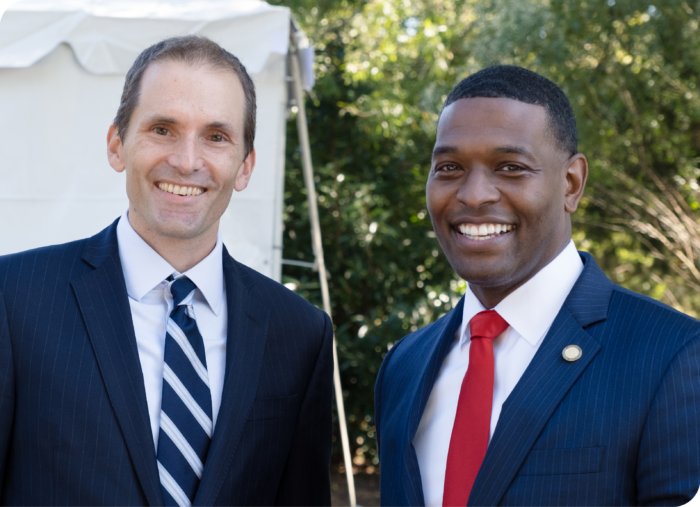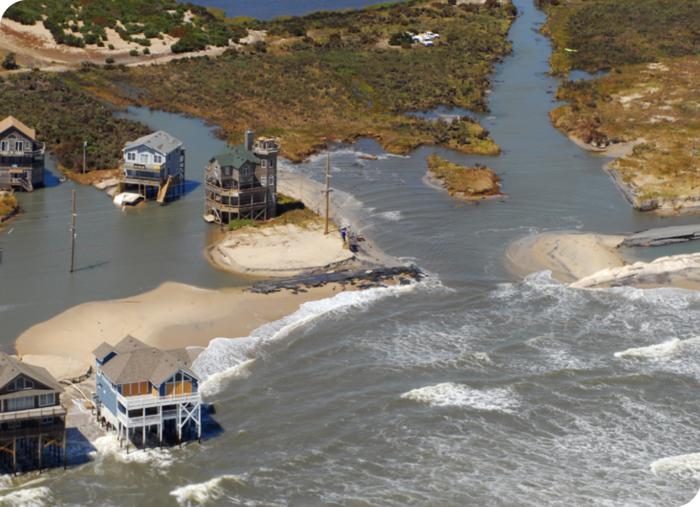North Carolina
As the South experiences extreme heat and increased flooding, there is no question we are at a critical time for our environmental future. We have the opportunity to protect our remarkable natural resources and to help turn the tide on climate change. SELC was built for this.
Rooted in the South, we use strong legal and policy work, strategic vision, and pragmatic problem solving in all three branches and at all levels of government. When one door is closed, we find another way. With our commitment to place, SELC is building on nearly 40 years of success in North Carolina and five other Southern states and driving results that resonate across the nation. That’s why we say, “Solutions Start in the South.”
Now is the time to act. Join us.
SELC’s cutting edge clean water work is shaping national policy

We pioneered legal strategies that are addressing major sources of water contamination across North Carolina and establishing proven models to drive national policy. Our innovative approach to enforcing cleanup of toxic coal ash pollution under the Clean Water Act has led to court and state orders for utilities to clean up over 136 million tons of coal ash polluting North Carolina’s waterways.
We applied this same strategy to PFAS pollution and reached a legally binding consent order with Chemours and the state to remove at least 99 percent of GenX and other PFAS discharges into the Cape Fear River at the company’s Fayetteville facility. We have reached agreements with Burlington and Greensboro to identify and address the sources of similar industrial pollution in the Haw River. Because this contamination has been ongoing for years, there is more work to be done to clean up toxins in drinking water supplies for many downstream communities like Wilmington and Pittsboro—but we have shown that our states have the existing authority to effectively combat PFAS pollution.
As a result of our advocacy, North Carolina issued a permit to Chemours that includes the most protective PFAS limits in the country. Citing these results, the U.S. Environmental Protection Agency announced in December new guidance that makes clear states must enforce existing law to stop toxic PFAS pollution from further contaminating drinking water sources across
the country.
Decarbonizing North Carolina’s economy

We are working to implement legislation requiring utilities to reduce power sector carbon pollution 70 percent by 2030 and to net zero by 2050, and directing the state utility commission to take “all reasonable steps” to achieve those reductions and prepare a carbon plan showing the least-cost path to achieving them. We will advocate for a plan that retires coal on an aggressive schedule, prevents construction of new gas plants, and maximizes deployment of clean energy resources while ensuring the benefits of the clean energy revolution in North Carolina are accessible to all communities.
Solutions start in North Carolina.
At SELC, we’re driven to go above and beyond in our work to protect the air, the water, and the special places of the Southeast.
Protecting wildlife from dredging
SELC is protecting endangered fish and sea turtles from dredging during biologically active months. In 2020, the U.S. Army Corps of Engineers reversed its longstanding practice of restricting dredging in Southeast harbors to the winter months, when it is less likely to harm and kill threatened species. We filed a lawsuit challenging the Corps’ new practice, and the court ruled in our favor last September. SELC will monitor the agency’s next steps to ensure wildlife in our North Carolina harbors are protected.
Burning forests is not a climate change solution
SELC is raising awareness that European biomass policies—enacted to address climate change—are actually making the problem worse. Cutting trees in the Southern U.S. to fuel power plants overseas increases carbon in the atmosphere for up to a century. After we filed a federal lawsuit challenging a British-owned pellet company’s violations in Lumberton, the company sold the facility to a company that rehabilitates old manufacturing sites—a win for Lumberton, but we will keep a close watch on plans for other wood pellet facilities. Overseas, our Cut Carbon Not Forests campaign is pushing to reform British policies propping up the industry, and we are warning politicians in D.C. against taking up support of biomass.
Good news for endangered species
SELC is a champion for the South’s unparalleled biodiversity. We are battling in federal court to promote the recovery of the world’s only wild population of red wolves in eastern North Carolina. After we won a preliminary injunction, the U.S. Fish and Wildlife Service resumed releasing red wolves into the wild in 2022. Additionally, six red wolf pups were born in the wild last year—the first wild litter of red wolf pups since 2018. We are hopeful that the recent releases are the first of many steps by Fish and Wildlife needed to ensure the success of the North Carolina population, and we will continue to monitor the agency’s actions going forward.
Solutions for a healthy environment start in North Carolina. Your support helps make our wins possible.
Promoting coastal resilience in North Carolina

As climate change fuels rising seas and erodes shorelines, SELC is helping North Carolina increase resiliency along the coast. Our website and interactive mapping tool, The Changing Coast, is helping citizens, activists, and policymakers look at how both current and proposed infrastructure will fare as sea level rise and climate change reshape the coast. SELC is also using our expertise in renewable energy to lead the national environmental community in supporting responsible offshore wind development at Kitty Hawk and Wilmington. SELC continues to work closely with the National Park Service and other partners to help ensure safe public access to Cape Hatteras National Seashore as crumbling beach houses from rising seas leave hazardous debris onshore.
Removing barriers to solar power
SELC is taking on bad policies that keep many in North Carolina from installing rooftop solar. Thanks to leadership from SELC and our partners, North Carolina’s Supreme Court recently ruled that homeowners’ association provisions cannot be used to prohibit rooftop solar panels under the state’s Solar Access Law. This decision reduces a significant barrier to accessing residential solar power in North Carolina and will help drive local job creation and economic development in the state’s growing solar industry.
